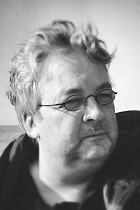While in residence as a visiting fellow at the RCC, Michael Schüring will be conducting research on a project entitled, “West German Protestants and Nuclear Technology, 1970-1990.” This project is an investigation of the role of the West German Protestant churches during the protests against nuclear energy in the 1970s and 1980s. Although both the political position and responsibility of the German churches have been investigated with respect to National Socialism and the collapse of the German Democratic Republic, their unique and remarkable stance towards non-military nuclear technology after 1945 has been barely touched upon. This project can be embedded within the long history of the environmental spirit in Germany, the role of the church as a moral authority, and the profound change of the political landscape in West Germany after the student protests of 1968.
RCC Research Project: “West German Protestants and Nuclear Technology, 1970-1990”
Selected Publications:
- Minervas verstossene Kinder: Vertriebene Wissenschaftler und die Vergangenheitspolitik der Max-Planck-Gesellschaft (Minerva’s Forsaken Children: The Expulsion of Scientists and the Politics of History in the Max Planck Society). Göttingen: Wallstein, 2006.
- “The Predecessor: The Uneasy Rapprochement between Carl Neuberg and Adolf Butenandt after 1945.” In The Kaiser Wilhelm Society under National Socialism, edited by Carola Sachse, et.al., 400-419. Cambridge: Cambridge University Press, 2009.
- “Expulsion, Compensation, and the Legacy of the Kaiser Wilhelm Society.” Minerva 44 (2006): 307 - 342.
- "Albert Einstein und die vertriebenen Kollegen aus der Kaiser-Wilhelm-Gesellschaft" (Albert Einstein and the Expelled Colleagues from the Kaiser Wilhelm Society). In Albert Einstein – Ingenieur des Universums: Hundert Autoren für Albert Einstein (Albert Einstein – Engineer of the Universe: One Hundred Authors on Albert Einstein), edited by Jürgen Renn, 324-327. Weinheim: Wiley, 2005.
- "Ein Dilemma der Kontinuität: Das Selbstverständnis der Max-Planck-Gesellschaft und der Umgang mit Emigranten in den 50er Jahren" (A Dilemma of Continuity: The Self Image of the Max Planck Society and the Treatment of Emigrants in the 1950s). In Wissenschaften und Wissenschaftspolitik: Bestandsaufnahmen zu Formationen, Brüchen und Kontinuitäten im Deutschland des 20. Jahrhunderts, edited by Rüdiger vom Bruch and Brigitte Kaderas, 453-464. Stuttgart: Franz Steiner, 2002.
- with Bernd Gausemeier. "Drama ohne Ende? Die Debatte um Heisenberg, Bohr und die Atombombe" (Drama without End? The Debate on Heisenberg, Bohr, and the Atomic Bomb). Physik Journal 4 (2002): 54-57.
Last updated: September 2011


